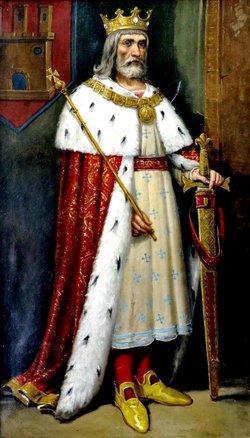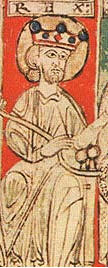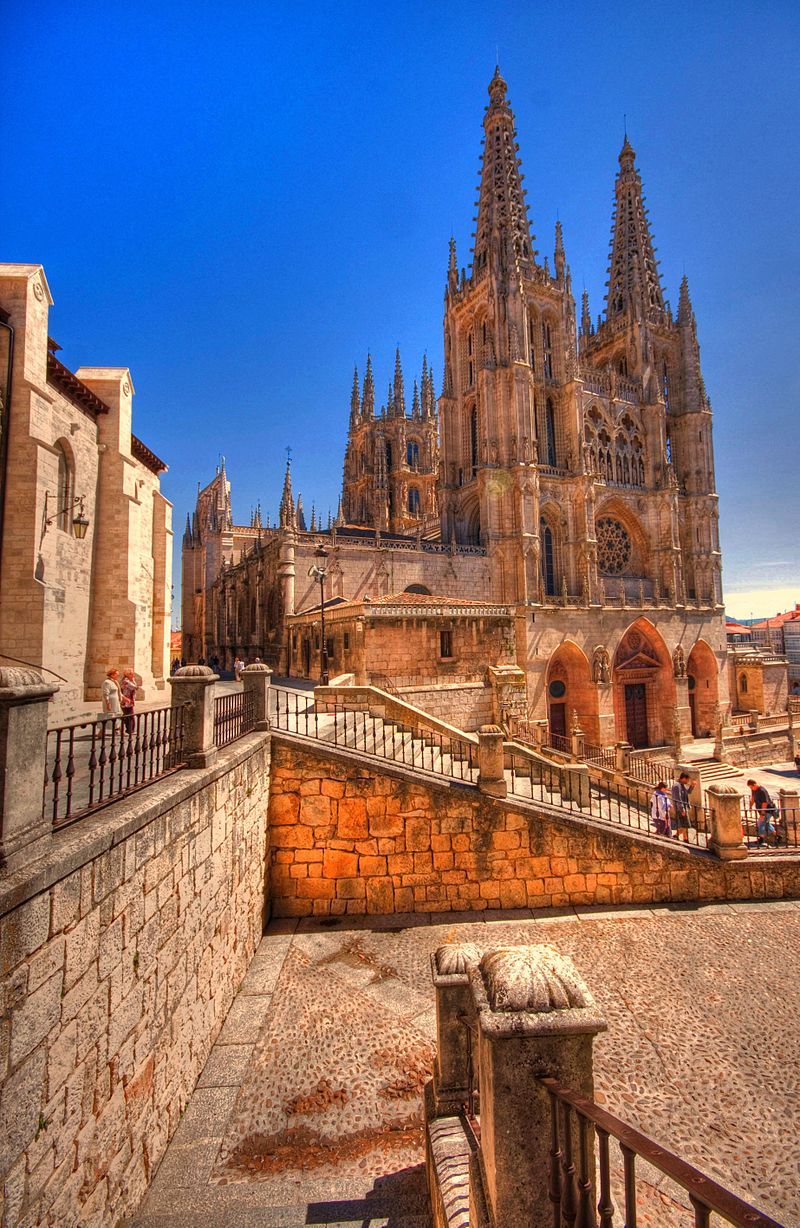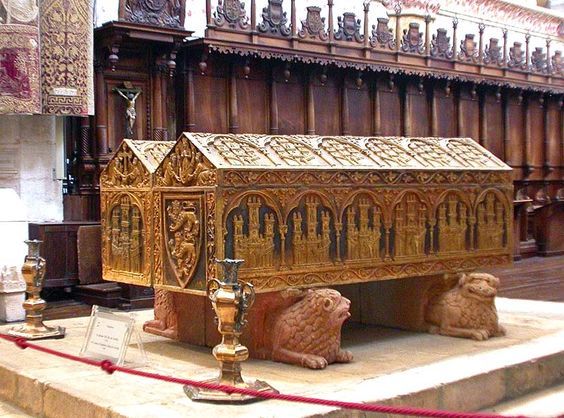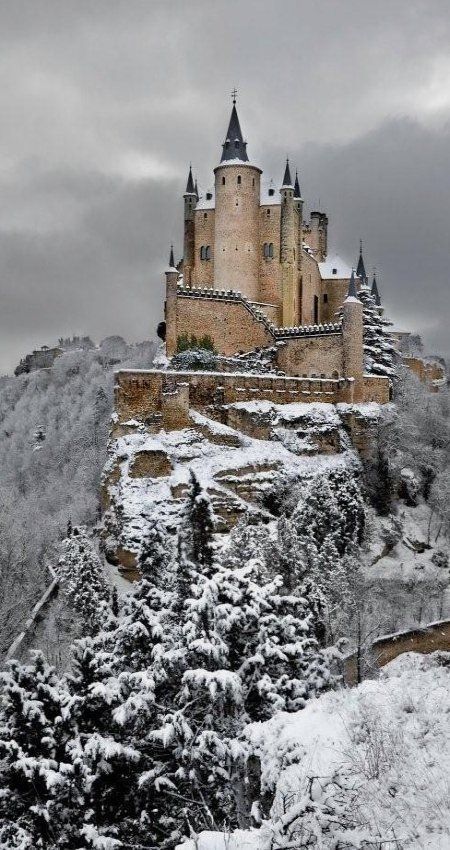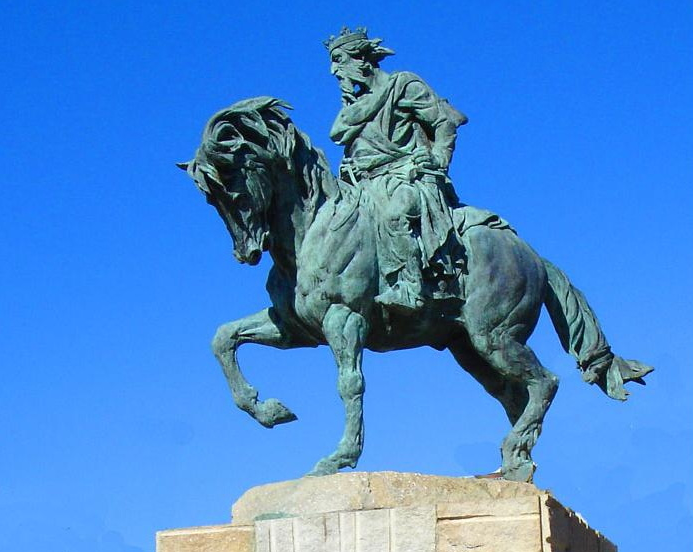Son of King Sancho III of Castile and Blanca Ramírez of Navarre, he succeeded to his father's crown at the age of three.
He began ruling in his own right at the age of fifteen, and during his reign, allied all the major Christian kingdoms on the Iberian Peninsula.
Alfonso married in 1177, to Eleanor Plantagenet, daughter of Henry II of England and Eleanor of Aquitaine. Their union produced eleven children, and together they founded the Monastery de Santa Maria la Real de las Huelgas.
When Alfonso died at Gutierre-Muñoz, his wife, in her grief, only survived him by a few weeks. They are buried together, and Alfonso was succeeded by his only surviving son, Enrique I.
∼New World Encyclopedia:
He is most remembered for his part in the Reconquista and the downfall of the Almohad Caliphate. After having suffered a great defeat with his own army at Alarcos against the Almohads, he led the coalition of Christian princes and foreign crusaders who broke the power of the Almohads in the Battle of the Navas de Tolosa in 1212 [on 16 July], an event which marked the arrival of an irreversible tide of Christian supremacy on the Iberian peninsula. His reign saw the domination of Castile over León and, by his alliance with Aragon, he drew those two spheres of Christian Iberia into close connection.
Son of King Sancho III of Castile and Blanca Ramírez of Navarre, he succeeded to his father's crown at the age of three.
He began ruling in his own right at the age of fifteen, and during his reign, allied all the major Christian kingdoms on the Iberian Peninsula.
Alfonso married in 1177, to Eleanor Plantagenet, daughter of Henry II of England and Eleanor of Aquitaine. Their union produced eleven children, and together they founded the Monastery de Santa Maria la Real de las Huelgas.
When Alfonso died at Gutierre-Muñoz, his wife, in her grief, only survived him by a few weeks. They are buried together, and Alfonso was succeeded by his only surviving son, Enrique I.
∼New World Encyclopedia:
He is most remembered for his part in the Reconquista and the downfall of the Almohad Caliphate. After having suffered a great defeat with his own army at Alarcos against the Almohads, he led the coalition of Christian princes and foreign crusaders who broke the power of the Almohads in the Battle of the Navas de Tolosa in 1212 [on 16 July], an event which marked the arrival of an irreversible tide of Christian supremacy on the Iberian peninsula. His reign saw the domination of Castile over León and, by his alliance with Aragon, he drew those two spheres of Christian Iberia into close connection.
Family Members
-
![]()
Berenguela de Castilla y de León Plantagenet
1180–1246
-
![]()
Sancho de Castilla y Plantagenet
1181–1181
-
Sancha de Castilla y Plantagenet
1182–1184
-
![]()
Urraca Castile
1187–1220
-
![]()
Blanche de Castille
1188–1252
-
Fernando de Castilla y Plantagenet
1189–1211
-
Mafalda de Castilla y Plantagenet
1191–1211
-
![]()
Leonor de Castilla y Plantagenet de Aragona
1202–1244
-
![]()
Enrique I de Castilla y Plantagenet
1204–1217
